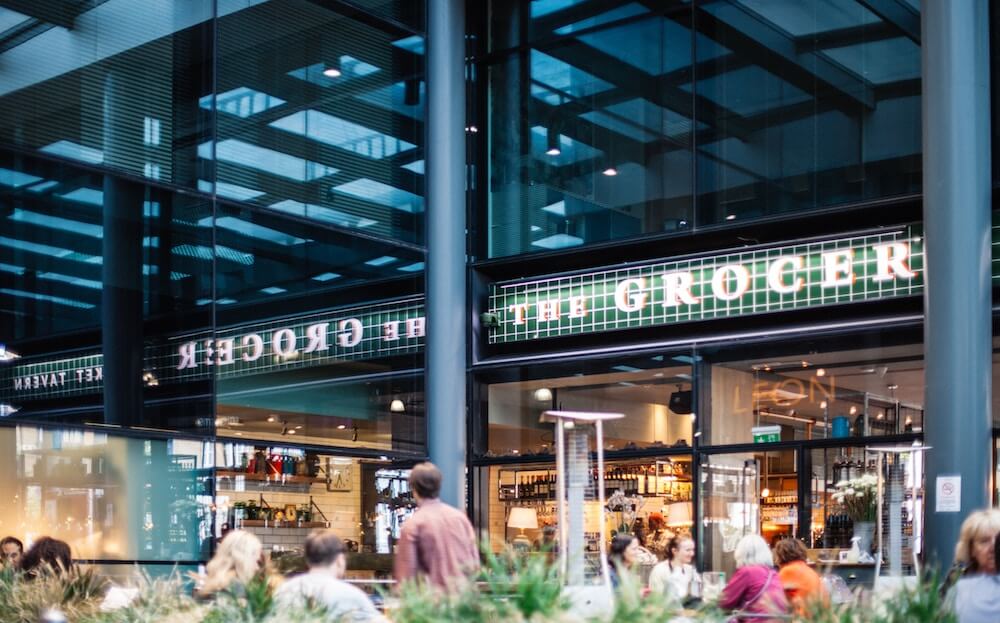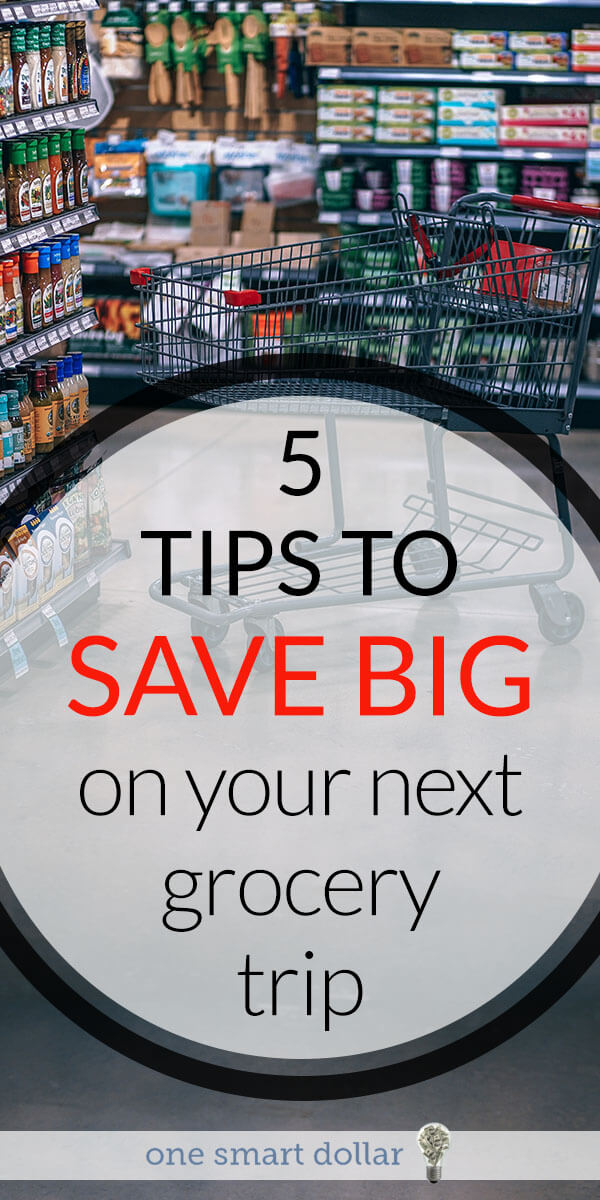
Looking for ways to get more bang for your buck at the grocery store? It’s easier than you think! No one should live on ramen alone. Here are some of my favorite tips for grocery shopping on a budget and getting cash back on groceries. You’ll be able to eat well with a fatter wallet, so what have you got to lose?
Grocery shopping on a budget starts with relationships
Grocery store employees are people just like you and me. If you visit the same stores frequently, start getting to know the people who work there. Each department has a manager and individual team members who might be able to help you save money. Produce employees can tell you when shipments come in so you get the freshest fruits and vegetables. And the meat department employees have insight into upcoming sales as well. Insider tips can help you be smart about grocery shopping.
“Having that relationship can not only make shopping more fun, plus might even have some savings perks as well,” says Keri Lyn Renner, founder of She Saved. “The manager of our local grocery store meat department always alerts me when he is going to mark the hams down for quick sale. They go as much as 70% off and it makes for a great buy!”
Use a cashback app
Apps like Ibotta help you get cash back on your grocery store purchases. Plus, when you use Ibotta, you can still use your regular grocery store rewards cards or coupons. It’s a quick, easy way to maximize your cashback on groceries.
Related
Be pantry smart
Dry goods and pantry items can last for a long time, so when you notice items on sale that you use frequently, don’t hesitate to stock up. Take note of the price per unit; you may be able to get a better deal by buying the next size up of an item, especially when it’s an item you can store for a few months. The catch is the remember what you have in your pantry so that you don’t over-buy later on.
“The easiest way to go grocery shopping on a budget is to only buy the items you need to make the meals you plan to actually cook,” says Rich, founder of PF Geeks. “So many people go to the store and wander around aimlessly while adding things to the grocery cart. Within weeks, most of the food goes bad. At the very least, everyone should take time to plan our their weekly meals.”
Buy seasonal produce locally
Large grocery store chains are almost always the best choice for grocery shopping on a budget. But if you live in an area that has a farmer’s market or something similar, try going there first. Seasonal local produce often lasts longer because it doesn’t have to be shipped as far. Plus, many marketplace vendors are willing to negotiate on their prices.
Don’t shop without a plan
Before you set foot in the grocery store, make sure you have a plan of what you need to buy. There are lots of great meal planning tools available to help you figure out what you need to make a meal so you don’t overbuy. Whenever possible, use a list or a grocery shopping app to keep you on track. Overbuying is not only hurtful to your budget, but also wasteful. Buy only as much as you need of perishable items to avoid food waste. When you throw away food, you might as well be throwing away your money!
“We try to buy in bulk whenever possible and then keep a good record of what we have in our pantry,” says Jim Wang, founder of Wallet Hacks. “This ensures we don’t accidentally buy too much and then have it spoil or otherwise go to waste. Food waste is a huge issue in American households so anytime you can keep your down, the better.”
Be BOGO savvy
Almost all grocery stores have buy one get one sales on different items. Most of these stores rotate their deals every week. You’ll want to find their mailer or look online to see what the current BOGO deals are before you go to the store. This will help you stretch your grocery store budget since you’ll be planning your meals around the best money-saving deals. A BOGO may feel like too much food, but remember that most items can be frozen for later – including popular BOGO items like bread, meats, and cheese.
“We frequently utilize buy one get one sales and plan our meals around them,” says Ruby Escalona, founder of A Journey We Love. “Meats are expensive, so if we find them on BOGO, we buy them and keep them in the freezer. Same for bread and other items that are staples in one’s grocery list (like pasta, for us).”
Don’t settle for one store
Most grocery store chains offer reasonable everyday prices on their groceries. But that doesn’t mean you shouldn’t shop around! Do your research by checking out local stores’ mailers or websites each week. Limiting yourself to one store may also limit the types of deals you can get. Take a few extra minutes and find the best deal from each store to truly maximize your grocery store budget.
Be wary of household items
Most grocery stores have only a small section of the store dedicated to household items like detergent and paper towels. With a smaller inventory, most stores won’t have great everyday prices for those items. That means picking up an item or two during your routine grocery run may end up costing you more in the long run.
Never buy household items from the grocery store unless they’re on sale or part of a BOGO. And when you do need to pick up some extra soap or a toothbrush, make sure you check the prices at online retailers too, where those items may be cheaper than your local corner store.

